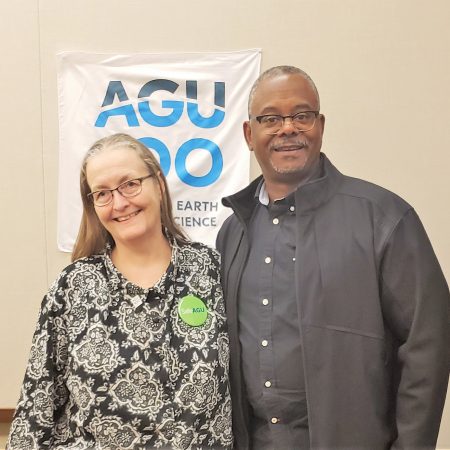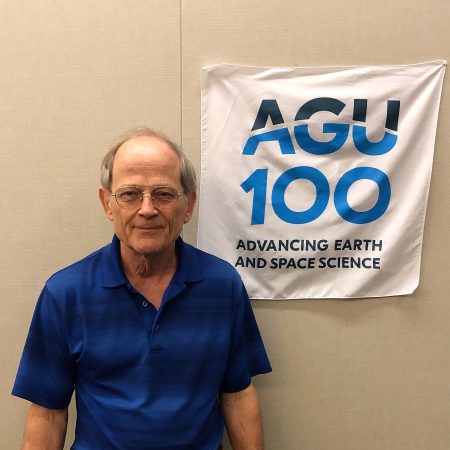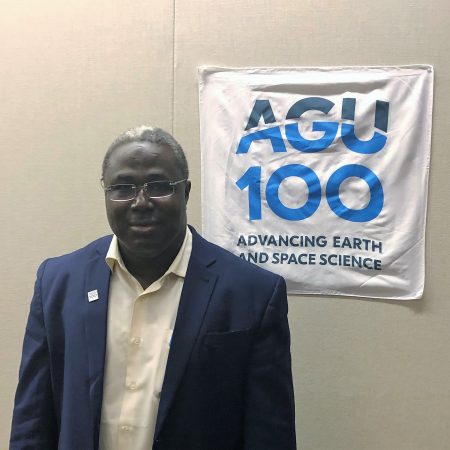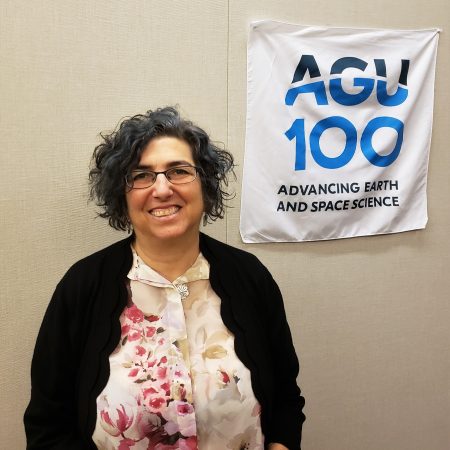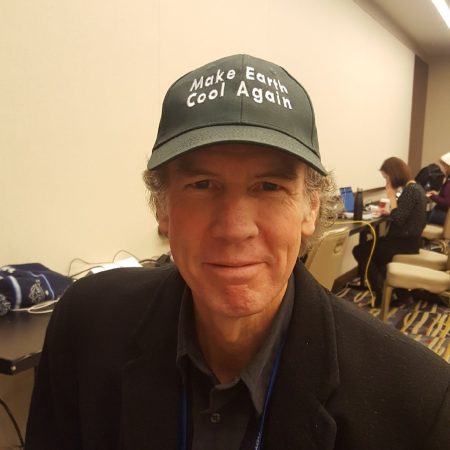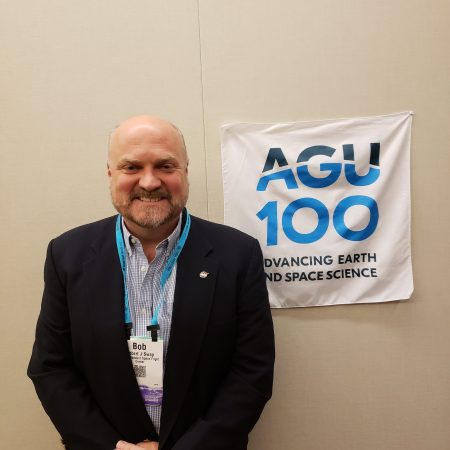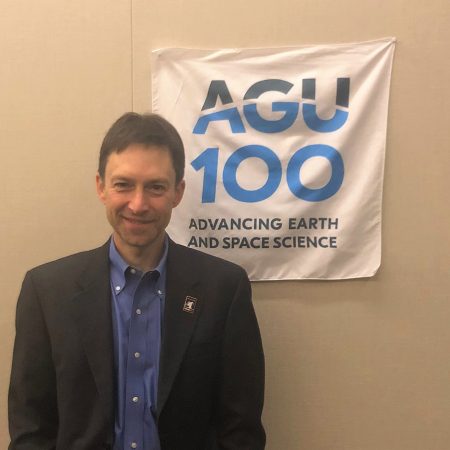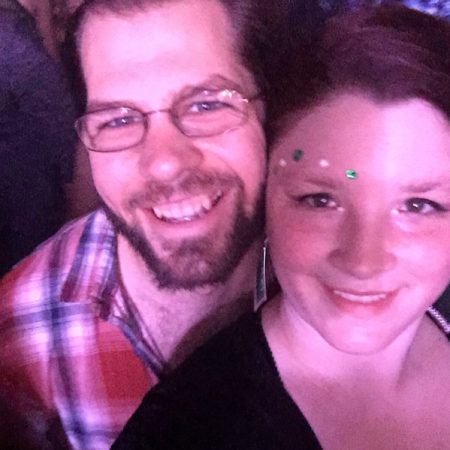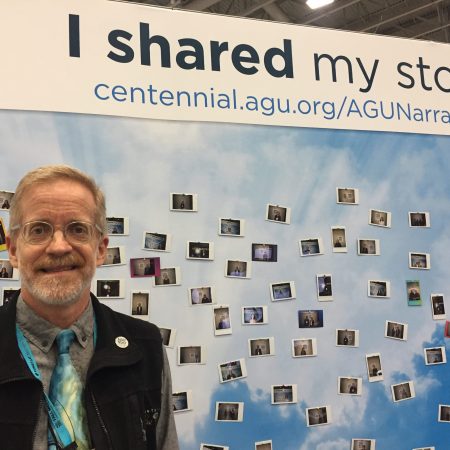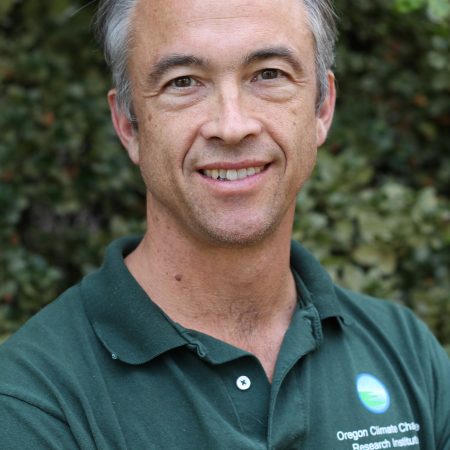Refine
Date Range Clear
Recorded by Clear
Keywords Clear
Partnerships Clear
- No matching terms.
Organizations Clear
- American Geophysical Union 9
- American Geopysical Union 2
- Ameican Geophysical Union 1
- National Aeronautics and Space Administration 1
- The American Geophysical Union 1
Places Clear
- Washington DC 42
- AGU 2018 Fall Meeting 36
- AGU Fall Meeting Program Commitee 2
- American Geophysical Union 1
- FAIR DATA 1
- 1 more
Languages Clear
- No matching terms.
Initiatives Clear
- No matching terms.
While Patrick Taylor spends a huge chunk of his time in the clouds, his work has nothing to do with daydreaming. The Research scientist at NASA’s Langley Research Center is working on understanding more about the role of clouds in...
David Young, Director of Science at NASA Langley Research Center, discusses his life's work studying the earth's climate. After an early interest in astrophysics, he focused in on earth science due to his desire to do research to help humans....
It took 21 years for Trevor McDougall to leave Australia, but when he did, he was on a plane headed to the University of Cambridge and a masters and Ph.D. in Oceanography. Besides the life-changing event of going from one...
Denis-Didier Rousseau, Senior Research Scientist at Centre National de la Recherche Scientifique, and Fall Meeting Program Committee Chair shares how at six years old he set the goal to be a paleontologist. He discusses how that has shaped his life...
Sandra Cauffman was told growing up in Costa Rica that she couldn’t be an electrical engineer because she was a woman. Decades into a career which has largely involved getting her hands dirty building instruments to fix on spacecraft, the...
Sprites are electrical discharges like lightning, but up in the middle atmosphere. Having only been in the scientific literature since the 1990s, sprites captured Geoff McHarg’s imagination while observing the Aurora in Alaska. Perfect for a guy whose view of...
Padma Yanamandra-Fisher, a research scientist at the Space Science Institute, shares stories of her career in planetary science. She recounts how defining the launch of Voyager was and the significance of the growth in the field since. Padma shares her...
The next time you see a young kid skateboarding through the neighborhood, possibly listening to punk rock on their earbuds, remember that one day that kid could be your local science professor. Doug Jerolmack’s sturdy voice and love of experimenting...
Michael Freilich, Director of NASA's Earth Science Division, shares about his life studying the oceans and Earth as a system. While still in his high school's oceanography club, he started exploring a question about how waves move that later became...
With great data comes great responsibility. Ruth Duerr, a self-described scientific “generalist,” and Steve Diggs, an ocean data specialist, take on years of efforts by scientists to inform the public while stopping short of being policy advisors. As data improves,...
Bruce Wielicki, a NASA Langley climate scientist, discusses his collaboration with economists to help non-scientists understand how climate change will hit them in the wallet, and how they could reduce that risk with modest investments in improved climate science. He...
Frédéric Ouattara, Universite de Koudougou, knows the practical implications of his research into the ionosphere. Our mobile phone signals become worse due to the weakening of the ionosphere. In Burkina Faso, he helps train the next-generations of geoscientists. The 2018...
Jill Marshall, Assistant Professor of Geology at the University of Arkansas thought she was ready to go to college, but there she was on the campus of Boston University as a freshman overwhelmed by her surroundings and on shaky financial...
After a career of 30 years studying climate change, Steve Ghan embarks on another journey of steps to "Make Earth Cool Again" as he is recognized as Fellow of the American Geophysical Union during the AGU 2018 Fall Meeting.
On the football field, Bob Swap learned to read the field, look at the play, assess the information, and move forward. Today, those same skills help him manage over 250 scientists at the Goddard Space Flight Center with NASA’s Pandora...
As a radio astronomer at the Jet Propulsion lab at NASA, Joseph Lazio walks us through his work in radio astronomy and career at NASA. He helped design radio telescopes to solve the mystery of why a hidden star was...
Chris Hain from the Short-term Prediction Research and Transition Center helps turn NASA data into information that non-scientists can use. One of his big projects is monitoring plant stress from space, which can give farmers a 2-4 week early warning...
A wonderful idea for a date, revisited on our 1 year Anniversary. A planner and a worrier sit down to try to engage on a rainy day.
Steve Montzka has been at NOAA for 28 years, working on atmospheric science, atmosphere chemistry, and trace gases in the atmosphere. He started there as a post-doc, drawn by the work he saw NOAA scientists doing on the hole in...
We won’t say how long Susan Lozier has been shaping young minds at Duke University (she may let it slip), but she talks about amazing changes that have happened during her tenure. She grew up wondering how rivers get polluted,...
In this inspiring interview, Becca Barnes, Bianca Rodriguez-Cardona, Evelyn Valdez-Ward, and Ben Sulman, four early-career biogeoscientists come together to share their reflections on what it means to be a scientist today. How can scientific knowledge be spread on social media?...
Steven Pawson, Chief of the Global Modeling and Assimilation Office at NASA Goddard Space Flight Center, shares his experiences working on atmospheric and Earth systems science, including interactions between the Ozone Layer and climate change, and predicting air quality for...
After being drawn to the oceans at an early age, Paula continues to examine many factors that influence changes in the oceans. As a program manager for NASA, she enjoys the opportunity to work with dedicated researchers and learn how...
David Crisp, senior research scientist at NASA, recounted his adventures, from going from a physics education major who had a paper on Venus winds published by Carl Sagan to a doctoral student at Princeton to helping fix Hubble. He described...
Is it a good time to be a climate scientist? Yes, says Phil Mote, Director Oregon Climate Change Research Institute at Oregon State University. Predictions over the past 40 years are coming true and while some look at that with...
!["Something I learn today is something that [could help] society tomorrow." an interview with Patrick Taylor](https://archive.storycorps.org/uploads/2019/02/181211_PatrickTaylor-450x450.jpg)

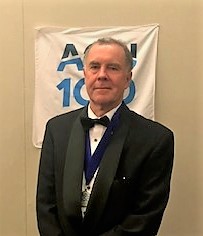
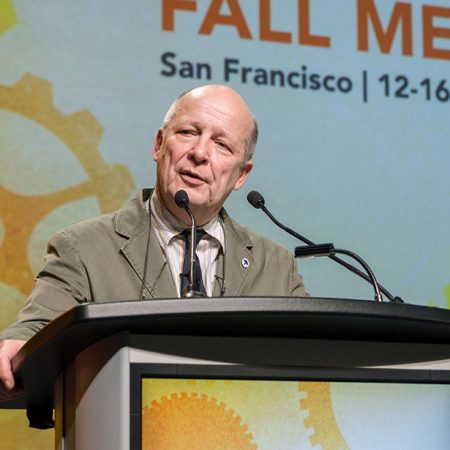


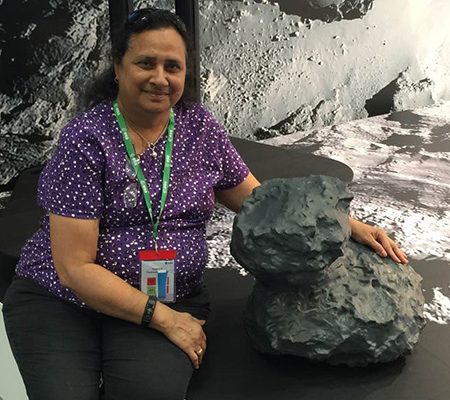
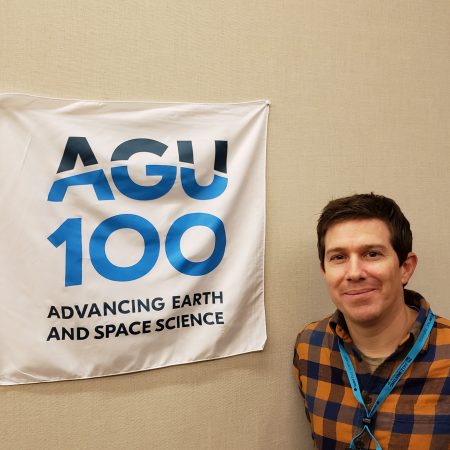
!["I joined an Oceanography club & actually asked the question that ended up [being] my thesis." an interview with Michael Freilich](https://archive.storycorps.org/uploads/2019/02/181212_Freilich-450x450.jpg)
